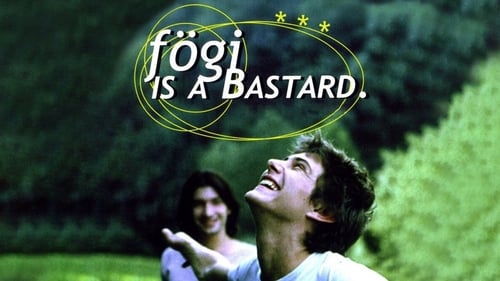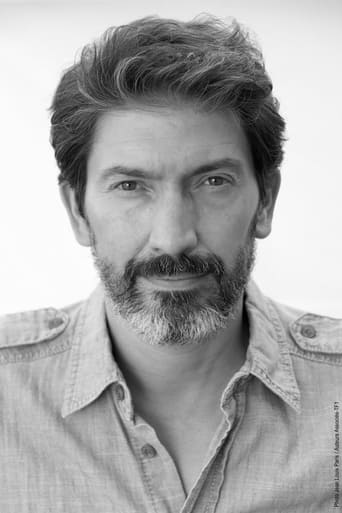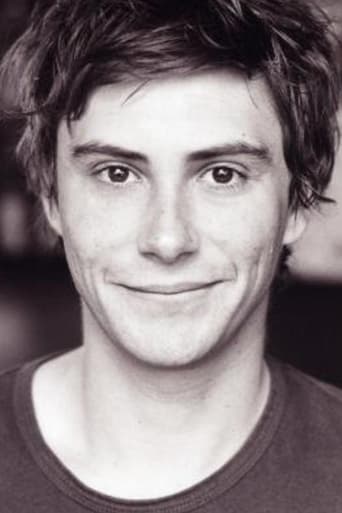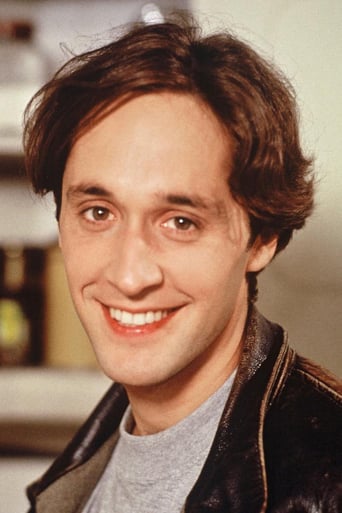CrawlerChunky
In truth, there is barely enough story here to make a film.
Roy Hart
If you're interested in the topic at hand, you should just watch it and judge yourself because the reviews have gone very biased by people that didn't even watch it and just hate (or love) the creator. I liked it, it was well written, narrated, and directed and it was about a topic that interests me.
Roxie
The thing I enjoyed most about the film is the fact that it doesn't shy away from being a super-sized-cliche;
sandover
Yes, Beni gets a target on, mostly, portrayal. Yes, Fogi is not bad either. Yes, we have some realistic scenes, especially the man-slave frustration ones, that means realistic like sentiments ringing true. Yes.Yet, apart from the early scene when and where Beni discovers the heady spin an orgasm offers, which is rarely if at all represented on screen, the film is not memorable, and all those reviewers who profess the film's high value will be caught with the capital crime of idealizing, which is actually another name if you think about it, of frustrated citizenship. Well, no one escapes this predicament unfortunately, but wouldn't it be better to give a try directing these forces to better appreciations? For I cannot but think that judging by the majority of the reviewers' reactions this is one more case of frustrated gay citizenship meets failed artistic endeavor and masquerading both as the film's and the viewers' achieved meeting. Why?Fogi is not a fag.Fogi is not a frog.Fogi is just a fog. -With what frequency can you ask yourself the question of what do you know? Not frequently.
tnwestlake
Outstanding acting, great casting, and really tight direction work together to make an unsparingly tragic plot both utterly believable and inexplicably hopeful.Dark, sexy and very disturbing, the film's central theme is of love: though it is used, abused, warped and betrayed, it retains a strange and constant purity throughout, even up to the central character's almost shocking conclusion at the end. There is no question of bestowing any redemptive power on love, since this is a film of unflinching reality, but love's ability to provide sense to an existence otherwise bereft of meaning is shown to the full. There are few films that try to do this. Even fewer succeed, but this is one of them.
benc7ca
The road to perdition is well-travelled and well-documented in movie history. This particular `Road Movie' is set mostly in Switzerland in the mid-1970's, a conceit I see as the one lie in a very truthful film. This could be set anywhere at anytime but if a director is going to film a period piece, then he'd better watch for the anachronisms; they can be his undoing! Watching one more character destroy himself on drugs and booze might have been cliche, however, the two young actors, Frédéric Andrau (Fögi) and Vincent Branchet (Beni), save us from this fate. Both are utterly convincing; I believed everything about them and I believed Beni's love for Fögi in all it's misguided, self-destructive force. The ending, inevitable and tragic, is saved from banality by Beni's `lesson learned', which is as original as it is poignant.
Ken Rudolph
From the other comments {as of 2001 when I first wrote about this film here} you might think "Fogi is a Bastard" is a total loser film; but I think those others missed the boat on this one. It remains the #1 film I'd like to own on video, one that actually breaks new ground in examining a hot, if dysfunctional, gay love affair. For me, it was the best film at OUTFEST 1999; and even though as a film it probably is not a masterpiece, as a gay film it is so amazing and mind blowing that it has replaced "Law of Desire" (by Almodòvar), as my all-time favorite gay film. Vincent Branchet plays Beni, a schoolboy in 1974 Switzerland, who develops a crush on Fogi the notoriously gay lead singer/guitarist of a local punk band, "The Minks". They form a relationship which starts out as innocent puppy dog attraction with wonderful sex, and which devolves to heavy sado-masochism as Fogi descends into heroin addiction and starts hiring out Beni as a call-boy and treating the willing and cooperative Beni as his dog (too bad the more apropos title, "My Life as a Dog" was already taken). It sounds unpromising, I know. Yet the film is such an unsparingly realistic portrayal; the actors so outstanding (Branchet is both the most attractive young actor and one of the best actors period that I've seen in several years; and Frederic Andrau, who plays Fogi is no slouch, himself) that it all works. The film is beautifully shot in a realistic, gritty style with a very mobile camera which defies description (a scene where the characters have dropped LSD and the whirling camera is used as a metaphor for their internal state is simply stunning.) It is exciting and innovative film making, and the director Marcel Gisler is one to watch for. This is a film I would go back to see over and over if it were ever to get a release here.I finally got to see this film again on DVD in March, 2012; and the film has lost none of its power to shock and amaze. Twelve years have passed since I saw it, and still no other filmmaker has managed to make a gay themed dramatic film which so ardently and truthfully managed to capture the unvarnished essence of the sex, drugs and Gothic Rock gay culture of the '70s. This film might have been set in Switzerland; but it could have been set anywhere that gay people congregated in that pre-AIDS, post-Stones era. This film remains a milestone of the gay cinema and deserves its place in the canon.







